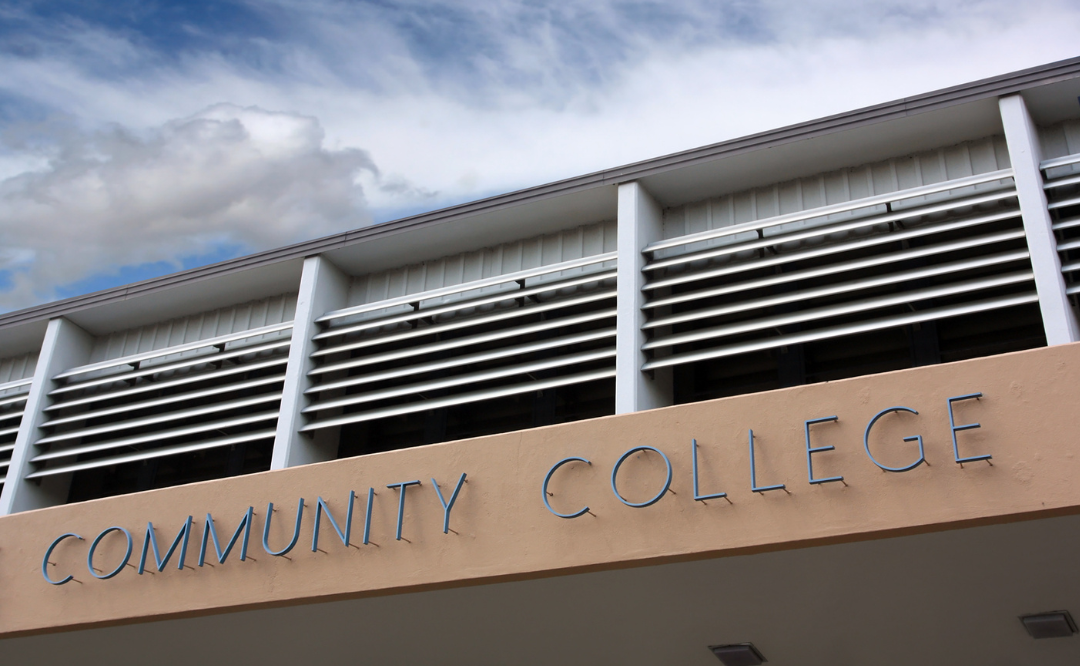The cost of a college education can feel daunting, with tuition fees, room and board, and living expenses adding up quickly. But what if you could shave off a semester, a year, or even more from your time at university and significantly reduce those out-of-pocket costs? The secret lies in earning early college credits while you’re still in high school. This isn’t just about saving money; it’s about getting a head start on your career, graduating sooner, and positioning yourself for success! Let’s dive into the various ways you can earn valuable college credits before you even step foot on a university campus!
Win more scholarships with less effort
Simplify and focus your application process with the one-stop platform for vetted scholarships.
Check for scholarships

Earning Early College Credits by Exam: AP, CLEP, & IB
One of the most popular ways to earn early college credits is by demonstrating mastery through standardized exams.
Advanced Placement (AP) Exams

Offered by the College Board, AP courses are college-level classes taught in high school. While you can get a “weighted GPA bump” for enrolling in the class, you can only receive college credit if you successfully pass the AP exam at the end of the school year. If you score well (typically a 3, 4, or 5, depending on the college), you can earn college credit or advanced placement in college courses. These exams cover a wide range of subjects, from Calculus to Art History, allowing you to earn credits in areas you’re passionate about.
Did you know?
You can register to take an AP exam even if you haven’t enrolled in the associated AP class! By going to the College Board website, you can register for the exam and then study on your own in the weeks leading up to the test using test prep books from a bookstore, online retailer, or your local library.
In 2024, 36% of United States public high school graduates took at least one AP exam, with 23% passing at least one AP exam with a score of 3 or higher.
College-Level Examination Program (CLEP) Exams
Also administered by the College Board, CLEP exams allow you to earn college credit for knowledge you’ve acquired outside of a traditional classroom. These exams are offered throughout the year for numerous subjects, giving you flexibility. If you don’t achieve the score you were hoping for on your first try, you can register to take the exam again. CLEP exams are often more general in nature and are a cost-effective way to fulfill general education requirements at many institutions. In the 2018-19 school year, over 22% of CLEP exams were taken by high school students – so if you decide to take a CLEP exam, you’ll be in good company!

International Baccalaureate (IB) Diploma Programme Exams
The IB Diploma Programme is a rigorous, internationally recognized two-year educational program primarily for students aged 16-19. This program is only available at certain high schools, so you’ll want to check to find out if it is available at your school. Students enrolled in IB courses can take higher-level (HL) or standard-level (SL) exams. Similar to AP, you can only get college credit if you successfully pass an exam. Earning certain scores on these exams can lead to college credit or advanced standing at universities worldwide, particularly if you achieve the full IB Diploma.
Dual Enrollment / Concurrent Enrollment Programs
Imagine taking a college class that counts for both high school and college credit simultaneously – that’s dual enrollment! And a 2024 report shows that dual enrollment is becoming increasingly popular, with over 2.5 million high school students (16%) enrolling in at least one college course while in high school! In these programs, high school students earn early college credits by enrolling in college courses taught at their high school, on a college campus, or online. Concurrent enrollment is very similar, often referring to instances where you are taking actual college courses at a local college while still in high school. These programs are a fantastic way to experience college-level academics, often with tuition significantly reduced or even waived by your high school or local college. You will receive college credit as long as you earn a grade of a C or better in the class.
ROP / Job Training / Apprenticeship Programs
Many high schools offer Regional Occupational Program (ROP) courses, or other career and technical education (CTE) programs, that can provide a unique pathway to early college credits. These programs give you hands-on training that can help you to land a higher-paying part-time job while you’re in college, enabling you to earn more money to put towards your tuition.

Some of these programs can also lead to a certificate, further demonstrating your learning. Beyond valuable job skills, some ROP or CTE courses have articulation agreements with local community colleges, meaning the credits you earn in high school can directly transfer to a college degree or certificate program.

Enrolling in Community College Courses on Your Own
You don’t always need a formal program to start earning early college credits. Many high school students choose to enroll in community college courses independently. Whether during the academic year evenings, weekends, or over the summer, taking classes at a local community college (either in-person or online) is an affordable and flexible option. This allows you to explore subjects, fulfill general education requirements, and get a feel for college-level coursework at a fraction of the cost of a university. You will receive college credit as long as you earn a grade of a C or better in the class.

Maximize Your Hard-Earned Early College Credits
Once you’ve put in the effort to earn these early college credits, you’ll want to make sure they count! As you apply to colleges, thoroughly research their policies on accepting AP, CLEP, IB, and dual enrollment credits. Some universities, particularly private institutions, may cap the number of credits they accept or only award elective credits instead of specific subject credits. Prioritize colleges that have a generous policy for accepting early credits, allowing you to maximize the financial and academic benefits of your hard work. To find this information, use the college’s website keyword search and input terms like “AP credits,” “credit by exam,” “transfer credits,” or “dual enrollment policy.” Don’t let your efforts go to waste!

The Goals: Why Early College Credits Matter
Earning college credits early offers a multitude of benefits that extend far beyond simply having “more credits” on your transcript:
Shorten Time & Save Money
By entering university with credits already completed, you can shorten the amount of time you need to spend at a four-year institution. This directly translates to significant savings on tuition, housing, and other associated costs, making college more affordable.

Boost Earning Potential
Graduating earlier means you can enter the full-time job market sooner, allowing you to start earning a professional income and building your career while your peers are still in school.
Reduce Student Loan Reliance
Every credit you earn for free or at a reduced cost is a credit you don’t have to pay for with student loans. This is a powerful strategy for graduating debt-free or at least with significantly less debt.
Academic Preparation & Rigor
Challenging yourself with college-level coursework in high school better prepares you for the academic demands of university. This rigorous courseload also impresses college admissions representatives, enhancing your application and increasing your chances of getting into your target schools.
Weighted GPA Bump
Many high schools offer a weighted GPA for AP, IB, and dual enrollment courses, adding an extra grade point for an A (e.g., a 5.0 instead of a 4.0). This can significantly boost your overall GPA, making your academic record even more competitive.
How to Find Early College Opportunities
With so many options for earning college credits early, the next logical question is, “Where do I start?” Don’t worry—finding these opportunities is easier than you think!

Talk to Your High School Counselor
Your high school counselor is your best first resource. Ask them about programs that enable students to earn college credits while in high school. They’ll have information about unique offerings or articulation agreements specific to your school or school district, so it’s important to ask them directly to make sure you’re well-informed.
Reach Out to a Community College Advisor
Don’t be afraid to take the initiative! Contact an academic advisor at your local community college and explain that you’re interested in earning college credits while in high school. The advisor will be able to tell you about available opportunities, and may know about programs that your high school counselor is unaware of. You can also visit the college’s website and search for terms like “dual enrollment,” “early college,” or “concurrent enrollment” to find information on your own.
Early College Credits Are a Smart Start

Earning early college credits is one of the smartest strategies you can employ to make your higher education journey more affordable, efficient, and impactful. Whether through exams, dual enrollment, vocational programs, or community college courses, these opportunities empower you to save money, graduate sooner, gain a competitive edge, and better prepare for the rigors of university life. Start exploring these options today, and give your college career the head start it deserves!
Looking for More Ways to Save?
Prioritizing debt-free sources for college is the right way to go! Submit the FAFSA for every year you’ll be in college, and apply for scholarships year-round. Aim for applying to three scholarships per week to develop a positive habit that will enable you to avoid takin on student debt. Get started today with a free 7-day trial at ScholarshipOwl.com!



